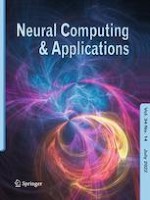10-03-2022 | Original Article
A two-stage energy management framework for optimal scheduling of multi-microgrids with generation and demand forecasting
Published in: Neural Computing and Applications | Issue 14/2022
Log inActivate our intelligent search to find suitable subject content or patents.
Select sections of text to find matching patents with Artificial Intelligence. powered by
Select sections of text to find additional relevant content using AI-assisted search. powered by
